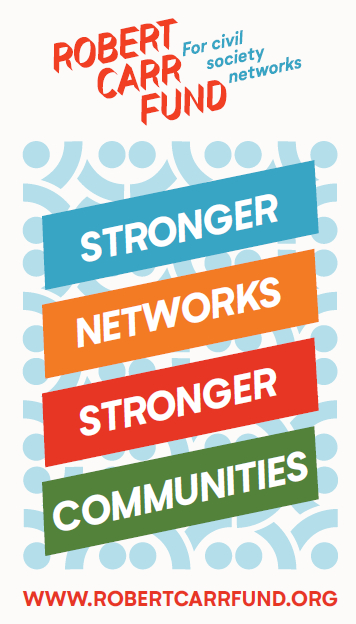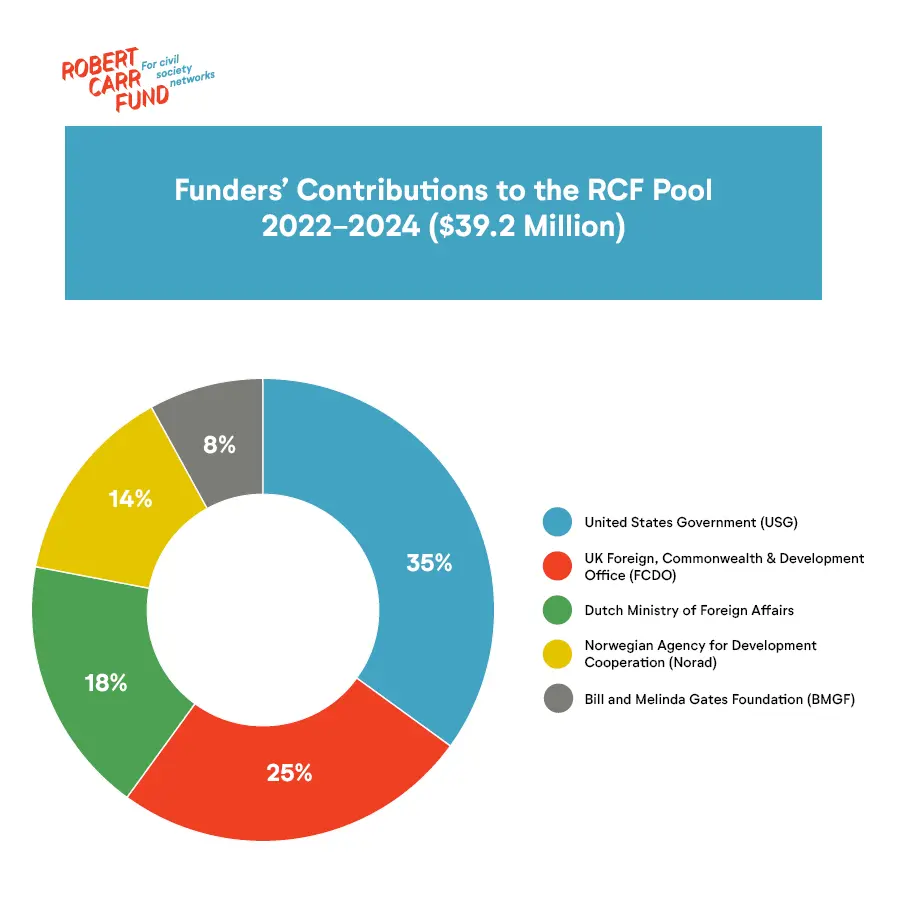Theory of Change and MEL Framework
MEL Framework, together with the Theory of Change, represents RCF’s systemic approach to reporting, data collection and measuring change.
We are a remarkable funder and a participatory model that works. Since its inception in 2012, Robert Carr Fund has matured into a highly regarded, strong and trusted funder.
To date, we have raised and allocated over $125 mln., 91% of which has been distributed in funds to global and regional community-led and civil society networks in HIV response.
We fund networks to build and sustain their organizational and programmatic capacity and develop strong regional and global collaborations.
RCF doesn’t just provide core funding, it also provides long-term funding, which is more constant than what individual funders are able to provide. Funders often have to be more time-bound, project focused, while RCF can take a longer-term view. – Siobhan Malone, Gates Foundation, ISC member
RCF is committed to provide core, long-term and flexible funding that enables community-led networks to be more resilient, agile and innovative. Our grant-making process is participatory and inclusive every step of the way. We are widely recognized as a model of good funding practice.

Participatory grant making cedes decision-making power about funding— including the strategy and criteria behind those decisions—to the very communities that funders aim to serve. — GrantCraft Foundation.
RCF ensures the participation of inadequately served populations in grant making decisions through our governance structure. Some see RCF’s approach as beyond ‘participatory’ and better described as ‘co-ownership’.
Funding priorities are agreed by the Program Advisory Panel (PAP) and International Steering Committee (ISC) through consultation and shared publicly with grantees and stakeholders. After grants are made, we regularly convene grantees to exchange ideas, develop strategies, and build solidarity and collaborations.
Read more in our Participatory Grantmaking Model Report
We have always engaged grantees and funders in our grantmaking process. Together they develop the Strategy, Theory of Change and MEL framework.
RCF Participatory Grantmaking Model Report
RCF 2025-2030 Strategy
RCF 2024 ToC and MEL Framework
Through our previous grant cycle of 2022-2024 we provided 25 grants awarded to 71 global and regional networks, our largest cohort to date. Programs were implemented in 130 countries.
Through the RFP, the Robert Carr Fund invites global and regional civil society networks and consortia of networks led by, and/or serving inadequately served populations to apply for a grant to support their core funding and activity needs for a three-year period.
In May 2024 RCF announced Request for Proposals for the next 2025-2027 funding cycle. We invited global and regional civil society networks and consortia led by and/or serving inadequately served populations to apply for a multiyear grant. The grants are to advance the objectives of our Strategic Plan 2025-2030.
Request for Proposals 2024 is currently closed.
Request for Proposals 2024We receive funding from:
We are grateful for strategic support from:

Our Monitoring Evaluation for Learning Framework is developed together with ISPs and funders. RCF measures progress across four critical outcome areas that together create positive change for inadequately served populations (ISPs).
Capacity Strengthening (all RCF partner networks work on this outcome area)
Programmatic (Advocacy) Outcomes (RCF partner networks select and report on whichever area/s their work will focus on each year)
RCF Annual Report 2023
RCF Annual Report 2022
RCF Annual Report 2021
Earlier RCF Annual Reports can be requested by sending an email to: secretariat@robertcarrfund.org.
Read more about our definitions of in the Glossary.
MEL Framework, together with the Theory of Change, represents RCF’s systemic approach to reporting, data collection and measuring change.
With RCF’s funding, our grantees strengthen their networks, foster community leadership and conduct global and regional advocacy campaigns to protect health and rights of the inadequately served populations.
In 2023 RCF invested $11.4 mln in 71 regional and global community-led networks across the globe.